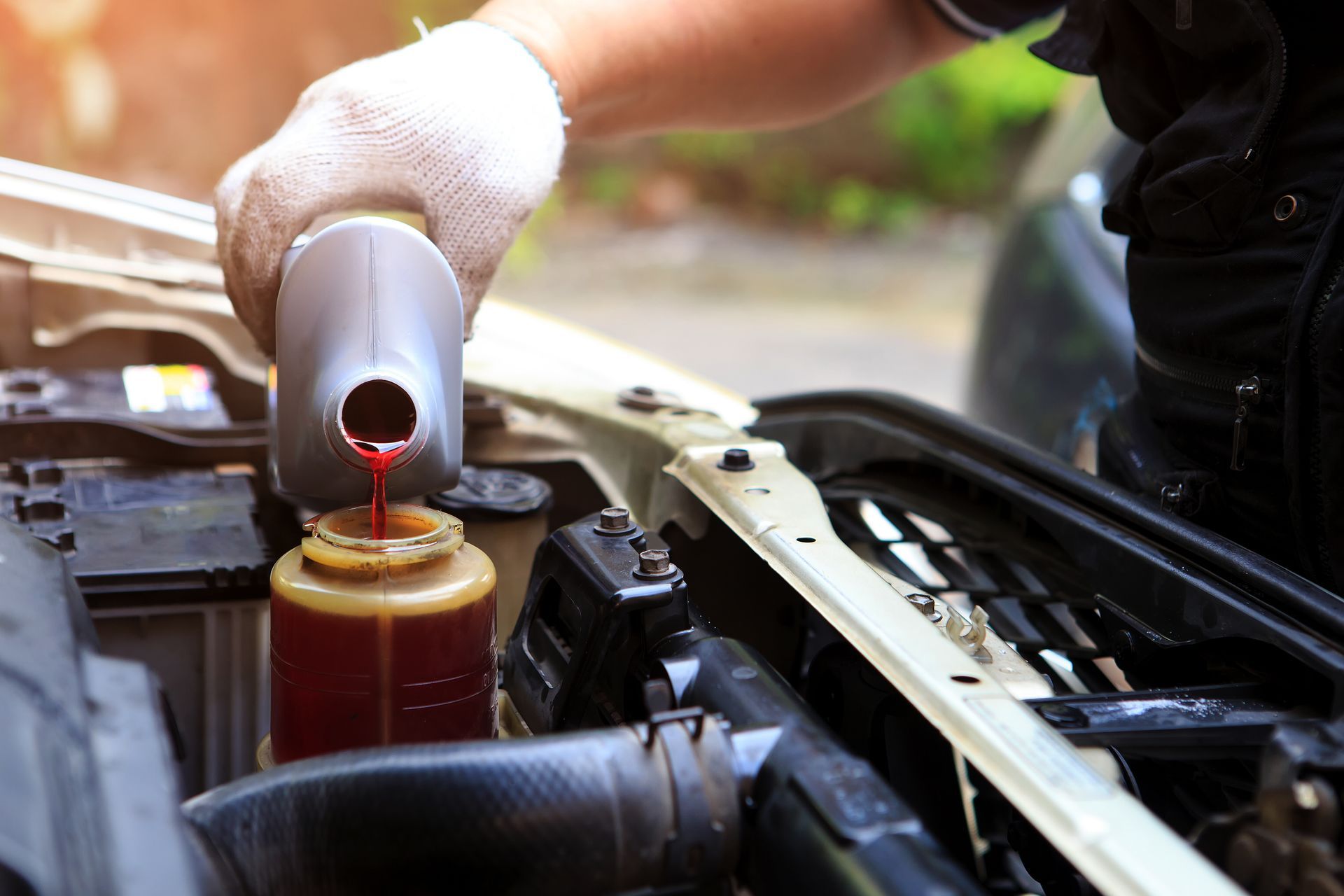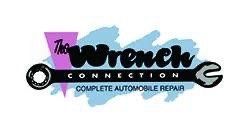Fluid Inspection
Fluid Vigilance: A Comprehensive Guide to Vehicle Fluid Inspection
Fluids are an integral component of your vehicle. While some partake in lubrication and cooling, others keep the brakes running smoothly. It's essential to inspect the fluid levels and condition regularly to ensure your vehicle is not short of something it direly needs.
The vehicle fluid inspection at The Wrench Connection
involves checking the coolant level, engine oil, brake fluid, power steering fluid, transmission fluid, and windshield washer fluid. Let's learn when and why to check these fluids.

Common Fluids To Inspect and Their Importance
Every fluid in your vehicle has a role in keeping your ride in optimal shape. Here are the six fluids you must check regularly and their functions in your vehicle.
Engine Oil
The motor or engine oil is a vital fluid that lubricates the engine. It also prevents engine overheating to ensure efficient performance.
There are three types of engine oils: synthetic, semi-synthetic, and conventional. Check your car's manual or an online resource to find which motor oil it uses. Our experts at The Wrench Connection can also help you determine the engine oil your vehicle needs.
Transmission Fluid
The transmission fluid also acts as a lubricant. A lower transmission fluid level could increase friction and reduce vehicle performance.
It's also crucial to check the transmission fluid color, which is generally red. If you notice contamination, a transmission fluid change is in order. Head over to The Wrench Connection and our experts will take it from there.
Brake Fluid
The hydraulic brake fluid runs through the brake lines and provides pressure when you engage the brakes. If there's a dip in the brake fluid level, you'll notice resistance when braking.
The brake fluid color is usually light yellow but may look brown due to age. Brake fluid contamination or leakage must be addressed immediately to prevent brake failures, which could result in accidents. At The Wrench Connection, we offer the right solution to deal with the problem, whether it’s brake fluid replacement or refill.
Power Steering Fluid
The power steering fluid forms a hydraulic connection between the vehicle's front wheels and the steering wheel to reduce the effort it takes for the wheels to turn. An optimal power steering fluid level is necessary to ensure a smooth ride.
Power steering fluid leaks can cause low levels of this important fluid. As a result, you'll notice the vehicle feels ''heavier.'' You'll also find it hard to steer the vehicle, even when driving at low speeds.
The impact is most noticeable at U-turns and sharp corners, where you'll need extra effort to turn the wheel. When you share these concerns with our experts at The Wrench Connection, they'll check the power steering fluid color, level, and condition to let you know if it's time for a change or refill.
Coolant
The engine coolant cools down the engine. It also removes the exhaust system's toxic byproducts from the vehicle. If there's a coolant leakage, the lower fluid levels will cause engine overheating.
Windshield Wiper Fluid
The washer fluid or windshield wiper fluid is the screen wash the windshield wipers spray on your windshield. A low washer fluid level means you won't be able to clean the windshield while driving.
What Does Vehicle Fluid Inspection Involve?
When you bring your vehicle for inspection at The Wrench Connection, you can expect the mechanics to check the following:
- Fluid levels
- Fluid conditions
Our experts check all fluid levels in your vehicle using reservoir markings or relevant dipsticks. If they suspect low fluid levels, they refill it to the required levels.
Secondly, the mechanics perform a fluid condition assessment, checking for the 3 Cs: color, contamination, and consistency.
Ideally, the vehicle fluids should be their original color. They must also be consistent in texture and flow. Most importantly, there should be no particles or sludge in the fluid, indicating contamination.
Fluid Replacement and Flushing
The vehicle fluid inspection is followed by fluid replacement or flushing. As your vehicle uses the fluids, they lose their quality over time.
Replacing the vehicle fluids regularly helps maintain efficiency and overall performance. How often you need to replace the fluid depends on your driving habits and the manufacturer's recommendation.
Signs You Need To Check Vehicle Fluid Levels
As the driver, you'll be the first to notice if there's something unusual in the fluid level in your vehicle. Here are some warning signs to look out for.
- Poor gear engagement: Do you find it difficult to shift gears in your car? Or do the gears seem to shift suddenly? Your vehicle might have low transmission fluid levels.
- Loud noises: Low fluid levels could be the culprit if your vehicle is suddenly noisy on the road. For instance, if the radiator coolant is low or contaminated, the air might get trapped in the radiator. The air pockets cause overheating, causing your engine to growl. Check the coolant color if you're sure the coolant levels are fine.
- Poor acceleration: If the transmission fluid isn't up to the mark, your car may not accelerate quickly.
Other signs of low fluid levels include vibration, difficulty braking, a burning smell, and check engine light.
Where Should You Go For Vehicle Fluid Inspection?
While you may be able to check the vehicle fluid levels at home, you won't have much luck trying to replace or flush them properly. That's where you need a trained professional at The Wrench Connection
The Wrench Connection
will check your fluid levels and bring them back to manufacturer-recommended levels. We can deal with any fluid-related issue, from poor washer fluid quality to brake fluid contamination.
Contact The Wrench Connection For Vehicle Fluid Inspection
If your vehicle has been giving you a tough time, bring it to The Wrench Connection, where we've been serving vehicle owners since 1994. Our friendly staff and reasonable prices will make vehicle fluid inspection a breeze.
To get in touch with us before coming in, give us a call at (407) 438-5153 or request service. We look forward to serving you.


